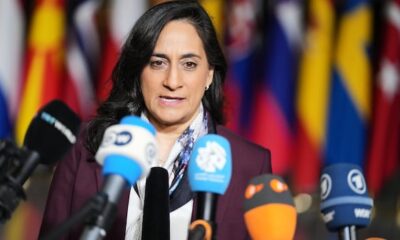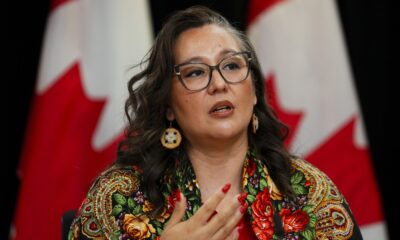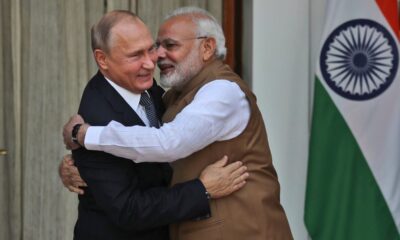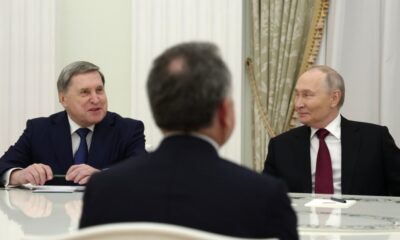Politics
Moldovans Vote in Critical Election Amid Russian Interference Claims
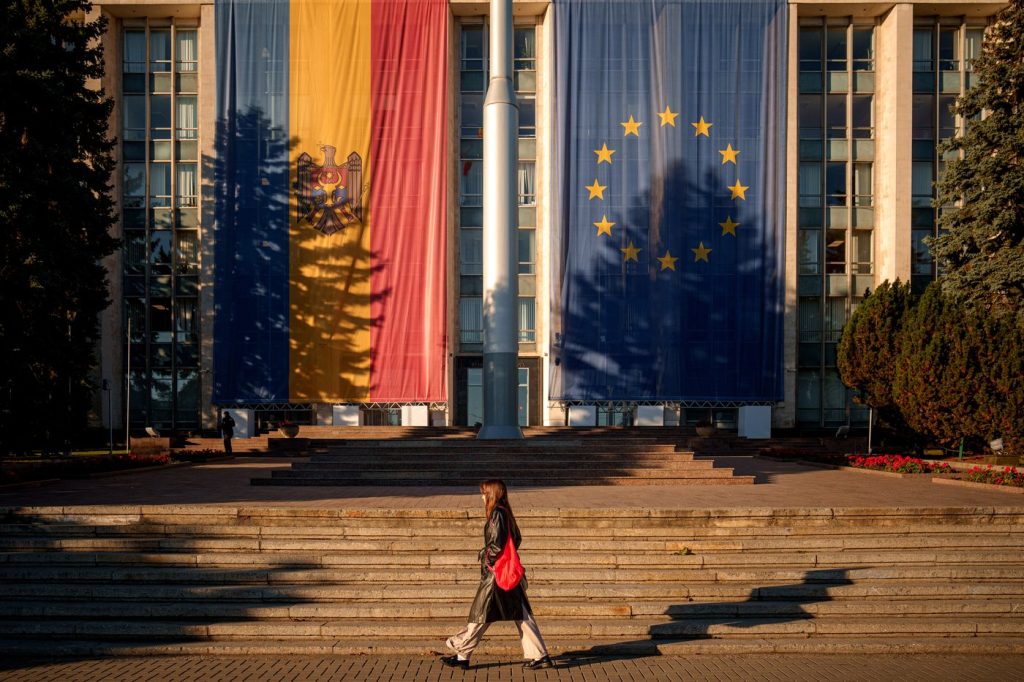
Moldovans are casting their ballots in a crucial parliamentary election that has been overshadowed by allegations of Russian interference. This election is pivotal, as it represents a choice between continued integration with the European Union or a potential shift back towards Russian influence. On March 24, 2024, voters will select members for a new 101-seat parliament, which will subsequently allow the president to nominate a prime minister, typically from the leading party or coalition.
The governing Party of Action and Solidarity, or PAS, has maintained a strong parliamentary majority since 2021. However, it now faces stiff competition from several Russia-friendly opposition parties, which complicates the electoral landscape. The outcome of this election is critical, not only for Moldova’s domestic policies but also for its geopolitical alignment, as the country continues to navigate its position between Ukraine and Romania, a member of the EU.
Dorin Recean, Moldova’s Prime Minister, warned that Russia is allegedly spending “hundreds of millions” of euros in a campaign described as a “hybrid war” aimed at influencing the election. He characterized this moment as “the final battle for our country’s future” and urged Moldovans, both at home and abroad, to mobilize against external manipulation.
The tactics attributed to Russian interference include extensive vote-buying schemes, cyberattacks targeting government infrastructure, and a disinformation campaign aimed at undermining support for the pro-European ruling party. Authorities have alerted the public to the possibility of election day disruptions, including false bomb threats and orchestrated violence.
In the lead-up to the election, law enforcement launched a crackdown that resulted in numerous raids and detentions, signaling the high stakes involved. The significant Moldovan diaspora, which played an influential role in the previous year’s presidential election, is expected to again impact voter turnout. In that presidential run-off, a record 327,000 voters abroad participated, with over 82% supporting Maia Sandu, the pro-Western incumbent.
The main opposition to PAS comes from the pro-Russian Patriotic Electoral Bloc, which advocates for maintaining “friendship with Russia” and “permanent neutrality.” Other competing parties include the populist Our Party, which seeks a balanced foreign policy, and the Alternativa Bloc, which claims pro-European sentiments but is criticized for potential ties to Moscow.
Moldova has faced numerous challenges in recent years, including rampant inflation and high poverty rates, which may affect public support for the ruling party. While local polls indicate that PAS is likely to secure the most votes, they do not account for the diaspora, and nearly a third of voters remain undecided. In the previous parliamentary election, voter turnout was just over 48%.
According to Iulian Groza, executive director of the Institute for European Policies and Reforms, higher voter turnout could bolster PAS’s chances of maintaining its majority. He noted, “Any party in government has a tendency to erode in public support, and in the last four years, Moldova has experienced multiple crises.” He emphasized that despite these challenges, Moldova has shown resilience against Russian aggression.
As the election unfolds, the implications for Moldova’s future remain uncertain. The outcome will not only determine the domestic political landscape but also signal the direction of the country’s foreign relations and alignment in an increasingly polarized geopolitical environment.
-

 Politics4 weeks ago
Politics4 weeks agoSecwepemc First Nation Seeks Aboriginal Title Over Kamloops Area
-

 World5 months ago
World5 months agoScientists Unearth Ancient Antarctic Ice to Unlock Climate Secrets
-

 Entertainment5 months ago
Entertainment5 months agoTrump and McCormick to Announce $70 Billion Energy Investments
-

 Science5 months ago
Science5 months agoFour Astronauts Return to Earth After International Space Station Mission
-

 Lifestyle5 months ago
Lifestyle5 months agoTransLink Launches Food Truck Program to Boost Revenue in Vancouver
-

 Technology3 months ago
Technology3 months agoApple Notes Enhances Functionality with Markdown Support in macOS 26
-

 Lifestyle3 months ago
Lifestyle3 months agoManitoba’s Burger Champion Shines Again Amid Dining Innovations
-

 Top Stories2 months ago
Top Stories2 months agoUrgent Update: Fatal Crash on Highway 99 Claims Life of Pitt Meadows Man
-

 Politics4 months ago
Politics4 months agoUkrainian Tennis Star Elina Svitolina Faces Death Threats Online
-

 Sports5 months ago
Sports5 months agoSearch Underway for Missing Hunter Amid Hokkaido Bear Emergency
-

 Politics5 months ago
Politics5 months agoCarney Engages First Nations Leaders at Development Law Summit
-

 Technology5 months ago
Technology5 months agoFrosthaven Launches Early Access on July 31, 2025

